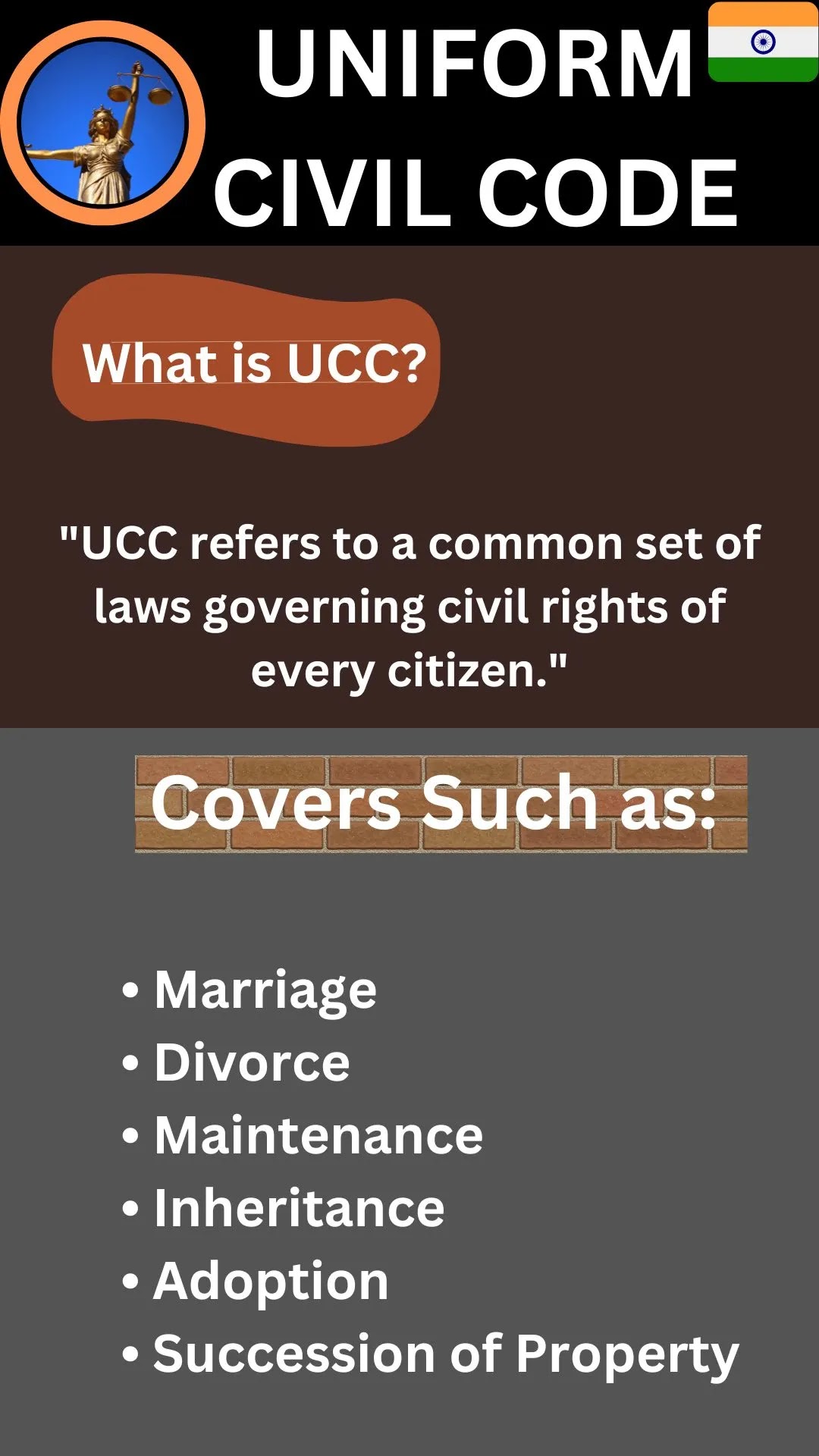Uniform Civil Code:
Why in News?
Recently, a private member of the Parliament introduced a
Bill in the Rajya Sabha, seeking the constitution of a committee to prepare and
implement a Uniform Civil Code (UCC) in the country.
What is Uniform Civil Code (UCC)?
UCC provides a single umbrella of law (‘one nation, one law’) for the entire country, applicable to all religious communities in their personal matters such as marriage, divorce, inheritance, adoption, maintenance etc.
Uniform Civil Code (UCC) is defined under Article 44 of
Directive Principles of State Policy. Article 44 of the Indian Constitution says
that the state “shall endeavour to secure for the citizens a Uniform Civil Code
throughout the territory of India”.
While there is no draft or model document yet for the UCC,
the framers of the Constitution envisioned that it would be a uniform set of
laws that would replace the distinct personal laws of each religion. Uniform
Civil Code is mentioned in Part IV of the Indian Constitution.
Background:
- Origin: The UCC has its roots in colonial India, where the British government first presented a report in 1835 that emphasised the need for uniformity in the codification of Indian law with regard to crimes, evidence, and contracts while specifically urging that the personal laws of Hindus and Muslims be kept outside of such codification.
- The uniform code in most civil matters such as Indian Contract Act 1872, Civil Procedure Code, Transfer of Property Act 1882, Partnership Act 1932, Evidence Act, 1872 etc.
- Constituent Assembly about the UCC:
- Sub-committee on fundamental rights(Sardar Vallabhbhai Patel): It decided that securing a UCC was not within the scope of fundamental rights.
- Member Naziruddin Ahmad from Bengal: UCC would come in the way of Article 19 of the draft Constitution-now Article 25(which guarantees the right to freedom of religion subject to public order, morality, and health).
- Member K.M. Munshi: UCC will promote the unity of the nation and equality for women.
- B.R. Ambedkar: He stated that the Article “merely” proposed that the state shall endeavour to secure a UCC, which means it would not impose it on all citizens.
Supreme Court on UCC:
The Supreme Courts have frequently stated in their judgments
that the government should move toward a UCC in order to promote uniformity.
- The judgement in the Shah Bano case (1985) is well known.
- Another case was the Sarla Mudgal Case (1995), which dealt with the issue of bigamy and conflict between the personal laws existing on matters of marriage.
Law Commission on UCC:
- According to Law Commission report, a unified nation did not necessarily need “uniformity” and secularism could not contradict the plurality prevalent in the country.
- It saying that a UCC “is neither necessary nor desirable at this stage”.
- The report recommended that discriminatory practices, prejudices and stereotypes within a particular religion and its personal laws should be studied and amended.
Benefits of UCC:
- India does have uniformity in most criminal and civil cases like the Criminal Procedure Code, Civil Procedure Code etc.
- It will do away with gender biases in existing personal laws. It will promote equality for women.
- The UCC aims to provide protection to vulnerable sections such as women and religious minorities.
- A Uniform Civil Code will also simplify the complex laws.
- UCC will promote the unity of the nation.
- Secularism is the objective enshrined in the Preamble. A secular nation needs a common law for all citizens rather than differentiated rules based on religious practices.
Challenges of UCC:
- The concept of ‘one nation, one law’ cannot be applied to diverse personal laws of various communities.
- The framers of the Indian Constitution did not intend total uniformity e.g., personal laws were placed in the Concurrent List.
- Interference of state in personal matters will violate the right to freedom of religion of one’s choice.
- It is very sensitive and difficult task to implement.
- Due to communal politics.
Uniform Civil Code is a rising hope for citizens under the
single umbrella of laws without damaging the beautiful fabric of diversity of the
nation. It can be implemented through several initiatives like education for
all, meeting with religious leaders, dialogue with people, advertising by celebrity,
use of social media-TV Channel and Radio for the awareness, etc.


Post a Comment
Post a Comment
Thanks...keep in touch 🤟